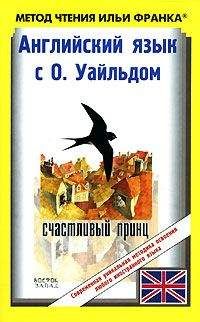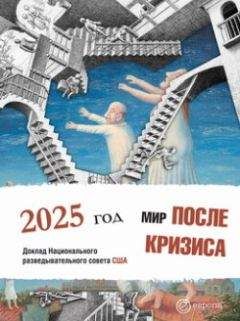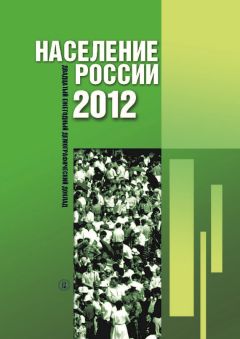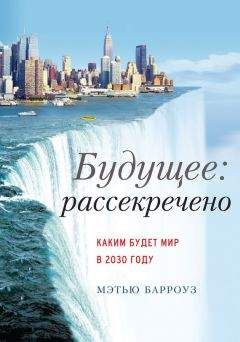Oscar Wilde - The Happy Prince and Ohter Tales

Обзор книги Oscar Wilde - The Happy Prince and Ohter Tales
The Happy Prince and Other Tales by Oscar Wilde
The Happy Prince
HIGH above the city (высоко над городом; high — высокий, находящийся в вышине, на высоте), on a tall column (на высокой колонне), stood the statue of the Happy Prince (стояла статуя Счастливого Принца; to stand (stood)). He was gilded all over (он был полностью покрыт; to gild — золотить, украшать) with thin leaves of fine gold (тонкими листочками из чистого золота; leaf (мн.ч. leaves), fine — ясный, чистый), for eyes he had two bright sapphires (вместо глаз у него были два ярких/великолепных сапфира; for — зд. указывает на замещение, замену: вместо, за), and a large red ruby glowed (и большой красный рубин сверкал) on his sword-hilt (на рукоятке его меча/шпаги).
He was very much admired indeed (им очень восхищались, конечно).
`He is as beautiful as a weathercock (он так же прекрасен, как флюгер; weather — погода, cock — петух),' remarked one of the Town Councillors (заметил/высказался один из Городских Советников) who wished to gain a reputation (который желал приобрести репутацию) for having artistic tastes (/человека/, обладающего художественным вкусом; artistic — артистический; любящий и понимающий искусство); `only not quite so useful (только не настолько полезен),' he added (добавил он), fearing lest people should think him unpractical (опасаясь, как бы люди не подумали, что он непрактичен; to fear — бояться), which he really was not (каковым он, конечно же, не был).
column ['koləm] statue ['stæt∫u:] sapphire ['sæfaiə]weathercock ['weðəkok] councillor ['kaυns(ə)lə]
HIGH above the city, on a tall column, stood the statue of the Happy Prince. He was gilded all over with thin leaves of fine gold, for eyes he had two bright sapphires, and a large red ruby glowed on his sword-hilt.
He was very much admired indeed.
`He is as beautiful as a weathercock,' remarked one of the Town Councillors who wished to gain a reputation for having artistic tastes; `only not quite so useful,' he added, fearing lest people should think him unpractical, which he really was not.
`Why can't you be like the Happy Prince (почему ты не можешь быть похожим на Счастливого принца; like — подобный, похожий)?' asked a sensible mother (спрашивала разумная мать) of her little boy (у своего маленького сына: «мальчугана») who was crying for the moon (который требовал невозможного: «кричал/требовал, чтобы ему дали луну»; to cry — кричать, to cry for — молить, настойчиво требовать, moon — луна). `The Happy Prince never dreams of crying for anything (Счастливому Принцу никогда и в голову не придет требовать чего-нибудь; to dream — видеть сон, мечтать; преим. в отриц. предложениях: думать).'
`I am glad there is some one in the world (я рад, что в этом мире есть хоть кто-то) who is quite happy (кто совершенно счастлив),' muttered a disappointed man (пробормотал разочаровавшийся человек; to disappoint — разочаровывать) as he gazed at the wonderful statue (уставившись: «пока он пристально смотрел» на удивительную/изумительную статую; wonder — чудо, удивление).
`He looks just like an angel (он очень похож на ангела; to look — смотреть, to look like — быть похожим, напоминать),' said the Charity Children (говорили Приютские Дети; charity — благотворительность, благотворительное учреждение) as they came out of the cathedral (выходя: «когда они вышли» из собора) in their bright scarlet cloaks (в /своих/ ярко-алых накидках), and their clean white pinafores (и /своих/ чистых белых = белоснежных передниках).
`How do you know (откуда вы знаете)?' said the Mathematical Master (сказал Учитель Математики; master — хозяин; учитель), `you have never seen one (вы никогда не видели /хотя бы/ одного ангела; one — зд. используется со значением «ангел» во избежание повторения).'
prince [prins] disappointed ["disə'pointid] cathedral [kə'θi:drəl]pinafore ['pinəfo:]
`Why can't you be like the Happy Prince?' asked a sensible mother of her little boy who was crying for the moon. `The Happy Prince never dreams of crying for anything.'
`I am glad there is some one in the world who is quite happy,' muttered a disappointed man as he gazed at the wonderful statue.
`He looks just like an angel,' said the Charity Children as they came out of the cathedral in their bright scarlet cloaks, and their clean white pinafores.
`How do you know?' said the Mathematical Master, `you have never seen one.'
`Ah! but we have, in our dreams (ах, кончено же /видели/, в своих снах),' answered the children (ответили дети); and the Mathematical Master frowned (и Учитель Математики нахмурился) and looked very severe (и посмотрел очень строго/сурово), for he did not approve of children dreaming (так как он не одобрял детских снов).
One night there flew over the city a little Swallow (однажды ночью над этим городом пролетала маленькая Ласточка /в дальнейшем будет переводиться как «маленький Ласточка», так как swallow в англ. языке имеет мужской род /как существо активное, храброе, ловкое/, замещается местоимением “he”, наряду с традиционным “it”; to fly (flew, flown)). His friends had gone away to Egypt (его друзья улетели в Египет; his — его; to go (went, gone) — идти, направляться) six weeks before (шесть недель /тому/ назад; before — раньше, прежде), but he had stayed behind (а он задержался; to stay behind — отстать от компании, остаться), for he was in love with the most beautiful Reed (так как был влюблен в прекраснейшую Камышинку; reed — тростник, камыш, в англ. языке имеет женский род /как существо слабое, нежное/, замещается местоимением “she”). He had met her early in the spring (он встретила ее ранней весной; to meet (met)) as he was flying down the river (пока летал вдоль речки; down — указывает на движение: вниз, в одном направлении, вдоль) after a big yellow moth (за большим желтым мотыльком; moth — моль), and had been so attracted by her slender waist (и была настолько привлечен ее стройным станом: «талией»; to attract — притягивать, прельщать) that he had stopped to talk to her (что остановился, чтобы поговорить с ней).
mathematical [mæθi'mætik(ə)l] swallow ['swoləυ] moth [moθ]
`Ah! but we have, in our dreams,' answered the children; and the Mathematical Master frowned and looked very severe, for he did not approve of children dreaming.
One night there flew over the city a little Swallow. His friends had gone away to Egypt six weeks before, but he had stayed behind, for he was in love with the most beautiful Reed. He had met her early in the spring as he was flying down the river after a big yellow moth, and had been so attracted by her slender waist that he had stopped to talk to her.
`Shall I love you (могу ли я полюбить тебя; shall — выражает желательность или обязательность действия)?' said the Swallow (сказал Ласточка), who liked to come to the point at once (которому /всегда/ нравилось сразу же переходить к сути дела; point — точка, вопрос, главное), and the Reed made him a low bow (и Камышинка отвесила ему низкий поклон = низко поклонилась; to make (made)). So he flew round and round her (тогда он стал кружить: «летать по кругу» вокруг нее; to fly (flew, flown)), touching the water with his wings (касаясь воды /своими/ крыльями), and making silver ripples (и оставляя /на воде/ серебряную/серебристую рябь; to make — делать, создавать). This was his courtship (так он выражал ей свою любовь: «это было ее ухаживание»), and it lasted all through the summer (и так продолжалось все лето; to last — продолжаться, длиться; all through — в течение, в продолжение).
`It is a ridiculous attachment (что за смехотворная привязанность; to attach — прикреплять, attachment — прикрепление; привязанность),' twittered the other Swallows (щебетали другие Ласточки), `she has no money (у нее нет денег), and far too many relations (и слишком уж много родственников; relation — отношение, связь; родственник, родственница);' and indeed the river was quite full of Reeds (и, действительно, та речка сильно заросла Тростником: «была полностью наполнена Тростником»; full — полный, заполненный). Then, when the autumn came (затем, когда пришла = наступила осень; to come (came, come)), they all flew away (они все улетели).
ripple ['rip(ə)l] courtship ['ko:t∫ip] ridiculous [ri'dikjυləs]
`Shall I love you?' said the Swallow, who liked to come to the point at once, and the Reed made him a low bow. So he flew round and round her, touching the water with his wings, and making silver ripples. This was his courtship, and it lasted all through the summer.
`It is a ridiculous attachment,' twittered the other Swallows, `she has no money, and far too many relations;' and indeed the river was quite full of Reeds. Then, when the autumn came, they all flew away.
After they had gone (после того, как они улетели; to have (had), to go (went, gone)) he felt lonely (он почувствовал себя одиноким; to feel (felt)— чувствовать), and began to tire of his lady-love (и начал тяготиться своей возлюбленной; to begin (began, begun), to tire — утомлять, терять интерес; lady — дама, love — любовь). `She has no conversation (с ней не поговоришь: «у нее нет разговора»),' he said (сказал он), `and I am afraid that she is a coquette (и я боюсь, что она кокетлива = непостоянна; coquette — кокетка), for she is always flirting with the wind (так как она всегда заигрывает с ветром; to flirt — флиртовать, кокетничать).' And certainly (и, конечно же), whenever the wind blew (всякий раз, когда дул ветер; to blow (blew, blown)), the Reed made the most graceful curtsies (Камышинка делала весьма грациозные реверансы; grace — грация, изящество).




